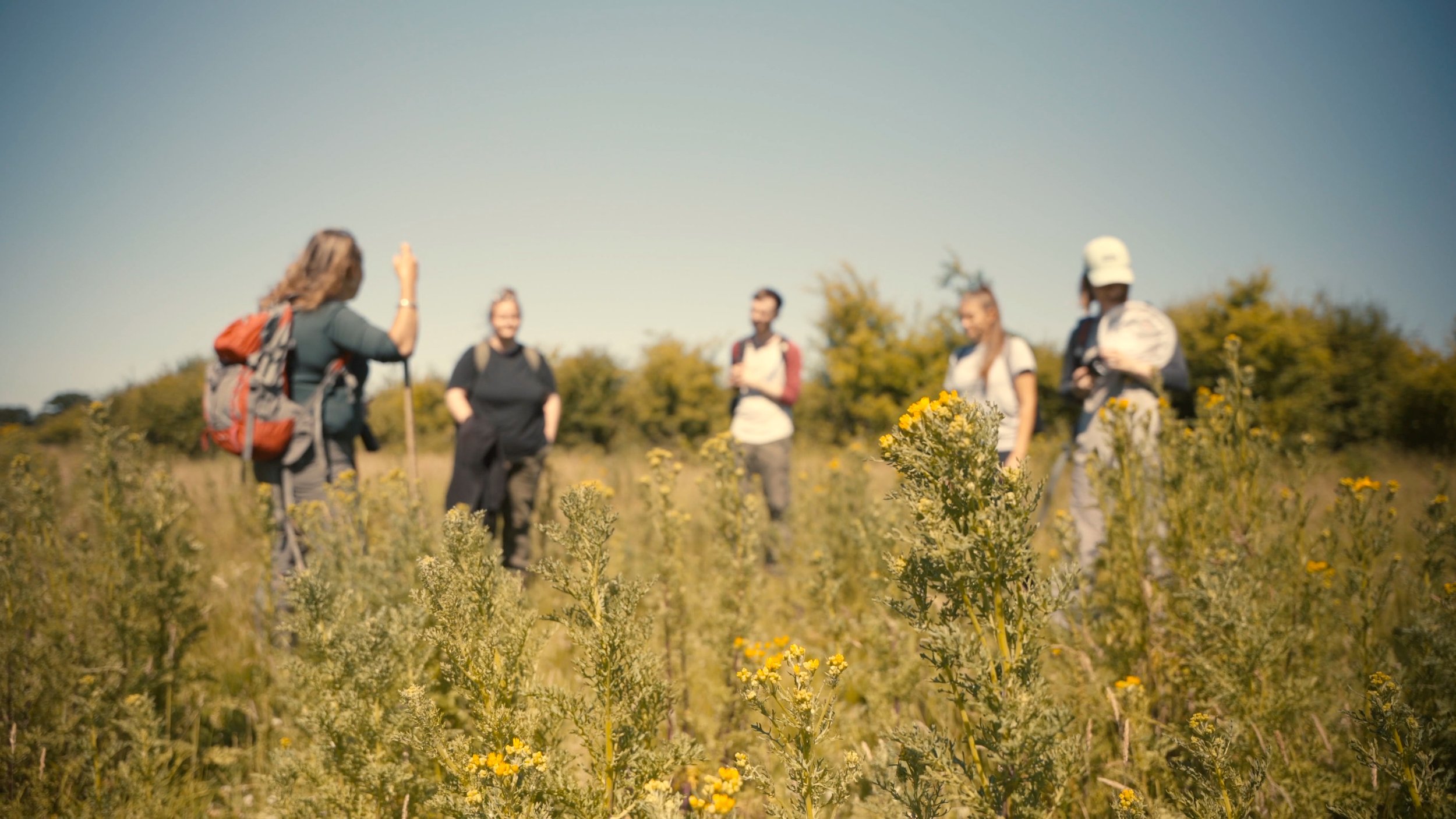
Latest Projects
Nature recovery is driven by collaboration and connectivity. We are building networks between people and habitats to restore the systems that we need to survive. Explore our current projects to find out how we are putting that into action.
Adur River Recovery
The River Adur is one of the largest rivers in Sussex. Like so many of Britain’s waterways it has suffered as a result of ‘canalisation’, the straightening of its embankments, pollution and loss of habitat. In 2006, Knepp embarked on a restoration project of the 2.2km stretch of the Adur that ran through the Wildland project. Today, this is one of the richest areas of biodiversity. This year, as part of the Environmental Land Management scheme (ELMS), the Knepp Wildland Foundation will take forward this work through a new collaboration of 30 farmers, land managers and conservation partners to explore a blueprint for landscape recovery over 750 hectares along the Adur.
Weald to Waves
Nature recovery corridors are essential for our landscapes to repair. Without them, we cannot forge connections for our fragmented wildlife. We are creating a nationally significant wildlife corridor, 100 miles in length, from the Ashdown Forest, via Knepp and our three major rivers to the kelp forests off the Sussex coast. Buffered by regenerative and wildlife-friendly food production we will create 20,000 hectares of largely contiguous habitat so that wildlife can travel through the landscape easily.
This will be supported by fresh investment in Sussex-wide nature recovery networks, creating corridors of action between groups and projects from Wealden forests to kelp forests, rewilded gardens to farm hedgerows, restored rivers to wild beaches, and from butterfly banks to wildflower verges.
Wild Futures
The Knepp Wildland Foundation runs and hosts a series of student visits, work placements, and residential and online training courses at Knepp for 16-25 year-olds. Our programme is ideal for those looking into wildlife and conservation careers, involved in environmental land management or with an avid interest in nature recovery. Our summer scheme includes 6 weeks of summer field skills courses with Operation Wallacea (Opwall) helping young people gain crucial fieldwork experience. We also host Duke of Edinburgh residential groups as well as schools visits and youth-led events.
Knepp provides a perfect site for exploration, education and hope for a new generation. Students spend time camping in the Southern Block of Knepp, completing practicals with experts, and taking part in lectures and discussions on biodiversity, land use policy, and ecosystem services. While students contribute to the cost of their placement, we run a a bursary scheme to ensure the programme is accessible to those who are less represented in ecology and conservation.
Find out more
Are you an educator or youth lead interested in hosting or co-running a course at Knepp? Get in touch
The White Stork Project
There is significant evidence to show that White Storks were once a breeding bird of Britain, with an archaeological record stretching back 360,000 years. A combination of habitat loss, over-hunting and targeted persecution all contributed to their decline. As a migratory bird species, there have been many sightings in the UK over recent years, but conservationists identified that the species would need a helping hand to re-establish a breeding population in Britain.
The Knepp Wildland Foundation is working with a group of land managers, in partnership with the Roy Dennis Wildlife Foundation, Cotswold Wildlife Park and Warsaw Zoo, to reintroduce these magnificent birds back to Sussex. With their 1.5-2m wingspan, they offer an soaring emblem of hope to engage communities in conservation, provide inspiration for restoring wetlands and help explore ways to bring back our lost species.
Scrubland Superheroes
The UK's scrubland, once prevalent across the country, provided a dense, thorny sanctuary for our native wildlife. Over centuries, it has diminished due to urbanisation and land management changes. This loss has had a profound impact on our ecosystems and has led to the decline of many important and iconic species. Knepp Wildland has showcased the value and beauty of restored scrub as part of a landscape managed by free-roaming herbivores. Our Scrubland Superheroes project is dedicated to revitalising these crucial habitats on a landscape scale. We are collaborating with Natural England, farmers, and land managers across five sites along the Weald to Waves corridor to create new scrubland habitat. These efforts will contribute to the reintroduction of the red-backed shrike, a once-common bird now functionally extinct as a breeding species in Britain. It will also benefit other endangered bird species such as the turtle dove, nightingale, and cuckoo, as well as a wide range of butterflies, moths, and small mammals.
Wild Data
Knepp's data is as diverse as the ecosystems we support. This year, we are opening up two decades of insight gathered across the Wildland project. Our new Wild Data new platform combines interactive data and storytelling, offering a new space to learn about and explore rewilding in action.
As our nature crisis deepens, data can guide us towards a more profound understanding of the systems that sustain human life. It gives us the means to monitor change over time, to track the losses and the gains. But we need to be the storytellers. Wild Data invites you to explore, understand and share this knowledge so you can play a part in igniting a new era of nature recovery.
Sign up to receive an alert for first release





